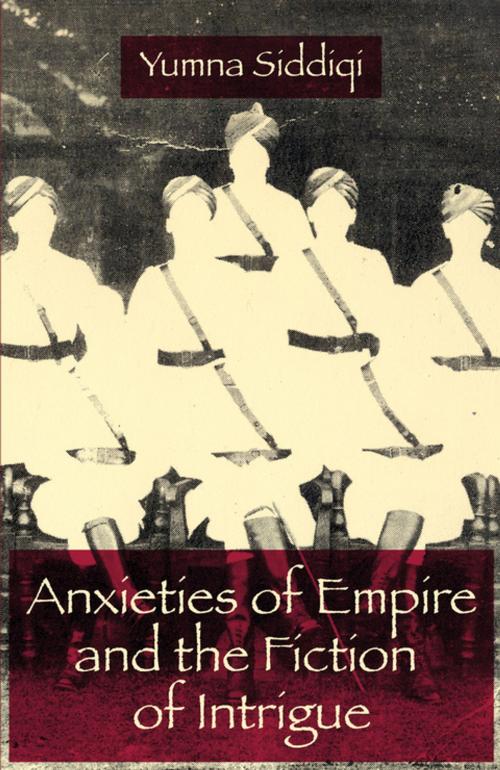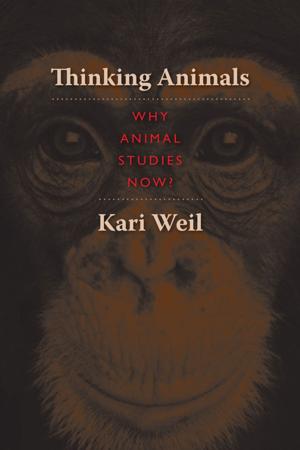Anxieties of Empire and the Fiction of Intrigue
Fiction & Literature, Literary Theory & Criticism, Asian, South & Southeast Asian, British, Nonfiction, Social & Cultural Studies, Social Science| Author: | Yumna Siddiqi, , Ph.D. | ISBN: | 9780231510868 |
| Publisher: | Columbia University Press | Publication: | December 28, 2007 |
| Imprint: | Columbia University Press | Language: | English |
| Author: | Yumna Siddiqi, , Ph.D. |
| ISBN: | 9780231510868 |
| Publisher: | Columbia University Press |
| Publication: | December 28, 2007 |
| Imprint: | Columbia University Press |
| Language: | English |
Focusing on late nineteenth- and twentieth-century stories of detection, policing, and espionage by British and South Asian writers, Yumna Siddiqi presents an original and compelling exploration of the cultural anxieties created by imperialism. She suggests that while colonial writers use narratives of intrigue to endorse imperial rule, postcolonial writers turn the generic conventions and topography of the fiction of intrigue on its head, launching a critique of imperial power that makes the repressive and emancipatory impulses of postcolonial modernity visible.
Siddiqi devotes the first part of her book to the colonial fiction of Arthur Conan Doyle and John Buchan, in which the British regime's preoccupation with maintaining power found its voice. The rationalization of difference, pronouncedly expressed through the genre's strategies of representation and narrative resolution, helped to reinforce domination and, in some cases, allay fears concerning the loss of colonial power.
In the second part, Siddiqi argues that late twentieth-century South Asian writers also underscore the state's insecurities, but unlike British imperial writers, they take a critical view of the state's authoritarian tendencies. Such writers as Amitav Ghosh, Michael Ondaatje, Arundhati Roy, and Salman Rushdie use the conventions of detective and spy fiction in creative ways to explore the coercive actions of the postcolonial state and the power dynamics of a postcolonial New Empire.
Drawing on the work of leading theorists of imperialism such as Edward Said, Frantz Fanon, and the Subaltern Studies historians, Siddiqi reveals how British writers express the anxious workings of a will to maintain imperial power in their writing. She also illuminates the ways South Asian writers portray the paradoxes of postcolonial modernity and trace the ruses and uses of reason in a world where the modern marks a horizon not only of hope but also of economic, military, and ecological disaster.
Focusing on late nineteenth- and twentieth-century stories of detection, policing, and espionage by British and South Asian writers, Yumna Siddiqi presents an original and compelling exploration of the cultural anxieties created by imperialism. She suggests that while colonial writers use narratives of intrigue to endorse imperial rule, postcolonial writers turn the generic conventions and topography of the fiction of intrigue on its head, launching a critique of imperial power that makes the repressive and emancipatory impulses of postcolonial modernity visible.
Siddiqi devotes the first part of her book to the colonial fiction of Arthur Conan Doyle and John Buchan, in which the British regime's preoccupation with maintaining power found its voice. The rationalization of difference, pronouncedly expressed through the genre's strategies of representation and narrative resolution, helped to reinforce domination and, in some cases, allay fears concerning the loss of colonial power.
In the second part, Siddiqi argues that late twentieth-century South Asian writers also underscore the state's insecurities, but unlike British imperial writers, they take a critical view of the state's authoritarian tendencies. Such writers as Amitav Ghosh, Michael Ondaatje, Arundhati Roy, and Salman Rushdie use the conventions of detective and spy fiction in creative ways to explore the coercive actions of the postcolonial state and the power dynamics of a postcolonial New Empire.
Drawing on the work of leading theorists of imperialism such as Edward Said, Frantz Fanon, and the Subaltern Studies historians, Siddiqi reveals how British writers express the anxious workings of a will to maintain imperial power in their writing. She also illuminates the ways South Asian writers portray the paradoxes of postcolonial modernity and trace the ruses and uses of reason in a world where the modern marks a horizon not only of hope but also of economic, military, and ecological disaster.















